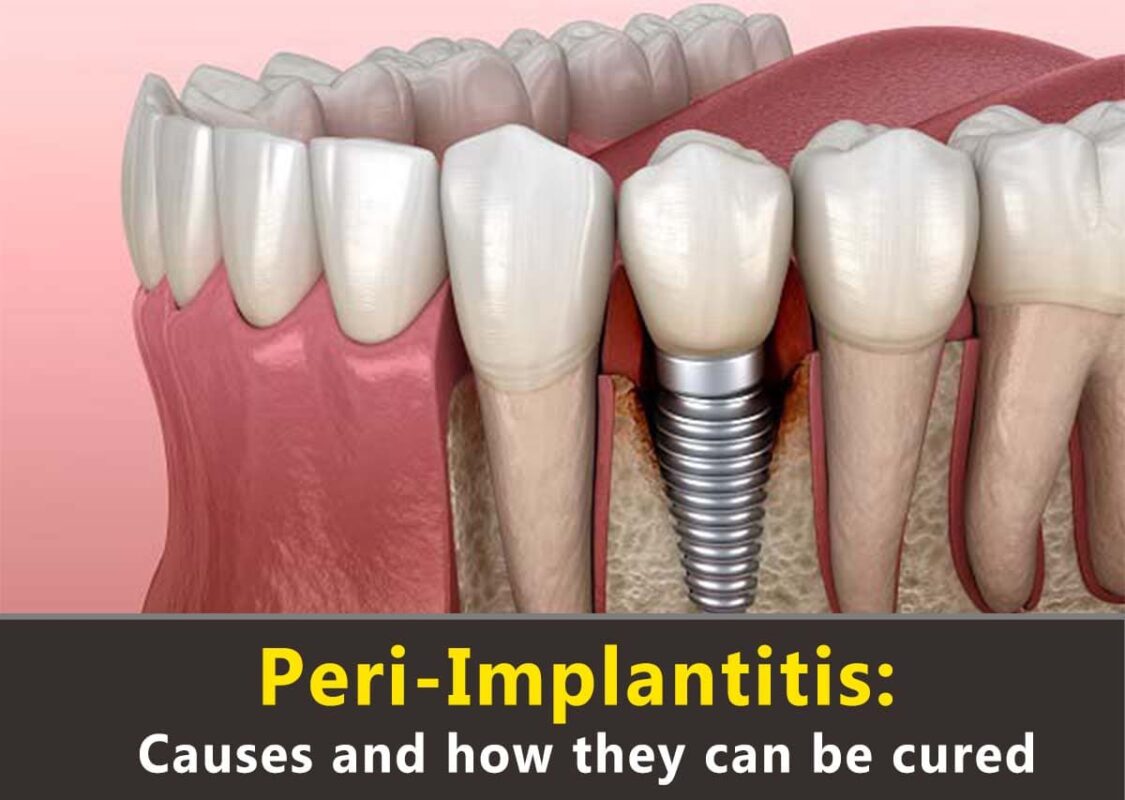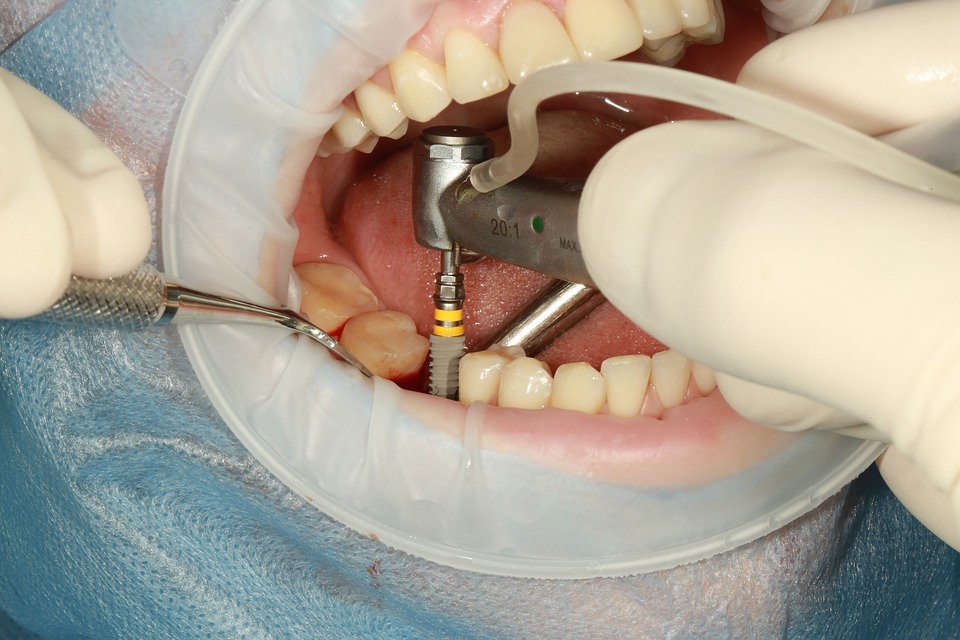
Most dental implants last a long time but there is one long risk associated with dental implants is a condition known as Peri–implantitis. It is an infectious disease that causes inflammation of the surrounding bone and gum surrounding an implant.
This leads to bone loss and gum disease which affects the durability of the implant. In severe cases, the implant may be lost and the infection and loss of bacteria can spread and affect adjacent teeth.
Peri-implant diseases are classified into two categories.
Peri-implant mucositis: An inflammatory response limited to the soft tissues surrounding a functioning oral implant
Peri-impalntitis : An Inflammatory response that involves loss of marginal bone around a functioning oral implant.
How They Can Be cured
It is obvious that prevention is simpler and far less costly for both the patient and dentist than having to deal with the aftermath of peri-implantitis. Therefore, better knowledge of the potential causes of peri-implantitis allows dentists to be in a far better position to prevent it from happening.
At Bhimani Dental Care Clinic our immediate priority is to prevent bacterial infections from occurring. However, when patients come to us with advanced cases, our long-term goal is to stop the progression of bone loss and keep their dental implants in place.

Additionally, to thoroughly cleansing the infected area with the proper dental tools, antidotes will often be prescribed to kill off the remaining unhealthy bacteria within your bone and gums. Antidotes may also be used directly to the implant itself as well.
Most severe cases of peri-implantitis need removal of the implant and bone grafting to replace the damaged bone. To do this, your gums will require to be opened and the infection fully detoxified.
Before new bone can be grafted onto the implant, your Periodontist must be confident that all of the infection can be removed. Most often this means strong antidotes. Just because one implant may have failed or developed bone loss, it does not mean the second one will.
Please feel free to comment or ask questions below that are relevant to this post.
